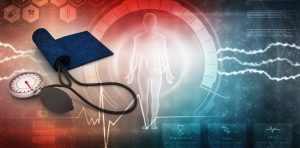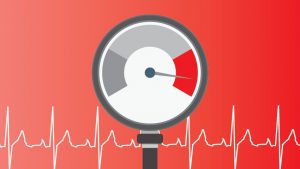Despite the improvement in living standards and the development of medicine modern people are exposed to various diseases that prevent them from enjoying life. One of the most common diseases of our time is hypertension.

Hypertension is vasoconstriction that leads to increased blood pressure.
Typically, hypertension is a persistent increase in blood pressure of more than 140/90 mm Hg. To establish the presence of this disease, you should record your blood pressure at different times of the day. With hypertension, only one pressure indicator may increase, and it will be enough to get a diagnosis of hypertension.
In 90-95% of cases, hypertension is an independent disease. But according to statistics, 5-10% of cases of increased blood pressure are the result of various diseases. Therefore, doctors conduct a thorough medical examination to determine the causes of high blood pressure.
If your blood pressure rises from time to time and is not constant, then this is not a sign of hypertension. You should study your lifestyle and understand what factors can trigger an increase in blood pressure. Even a healthy person can rarely have high blood pressure.
But if you often experience symptoms such as persistent headaches in the occipital and temporal zones, weakness, heart palpitations, puffiness around the eyes, tinnitus, profuse sweating, and redness of the skin on the neck and face, you need to visit a doctor urgently.
Of course, these symptoms do not say that you have 100% hypertension. They can talk about other diseases, therefore, for an accurate diagnosis and correct treatment, you should consult a doctor.
The effectiveness of treatment is envy how correctly the doctor will determine the cause of the high blood pressure. It is the reason that determines the method of treatment.

The reasons for the development of hypertension:
- overweight;
- unhealthy diets high in salt, trans fats, and sugar;
- age-related changes in the work of the cardiovascular system;
- sedentary lifestyle;
- genetic predisposition;
- hormonal disorders;
- arteriosclerosis;
- thyroid disease;
- bad habits as alcohol and smoking.
Scientists claim that nutrition plays an important role in the development of hypertension. They found that certain foods can constrict blood vessels and raise blood pressure.
Doctors and scientists urge you to minimize your intake of these foods:
Licorice root.
Glycyrrhizic acid, which is contained in this plant, disrupts metabolic processes in the body, and it contributes to the retention of sodium in the body. A large amount of sodium in your body retains water, which increases blood volume and its effect on the vessel walls. Therefore, if you are taking a medicine based on licorice root, measure your blood pressure every day and contact your doctor at the first sign of an increase.
Salt.
As we wrote in the previous paragraph, sodium contributes to an increase in blood pressure, and you risk getting hypertension. Therefore, you should avoid foods that are high in salt. As a rule, industrially processed foods are high in salt, so eliminate or reduce the amount.
Caffeine.
Consuming caffeinated foods leads to constriction of blood vessels and an increase in blood pressure. Therefore, keep track of the amount of coffee and tea you drink throughout the day. Also, you should remember that chocolate also contains caffeine and can affect the state of blood vessels.
Trans fats.
Foods that contribute to the accumulation of cholesterol in your blood vessels should be eliminated from your diet. Trans fats are the main enemy of healthy blood vessels, so try to avoid consuming them.
Comments are closed, but trackbacks and pingbacks are open.